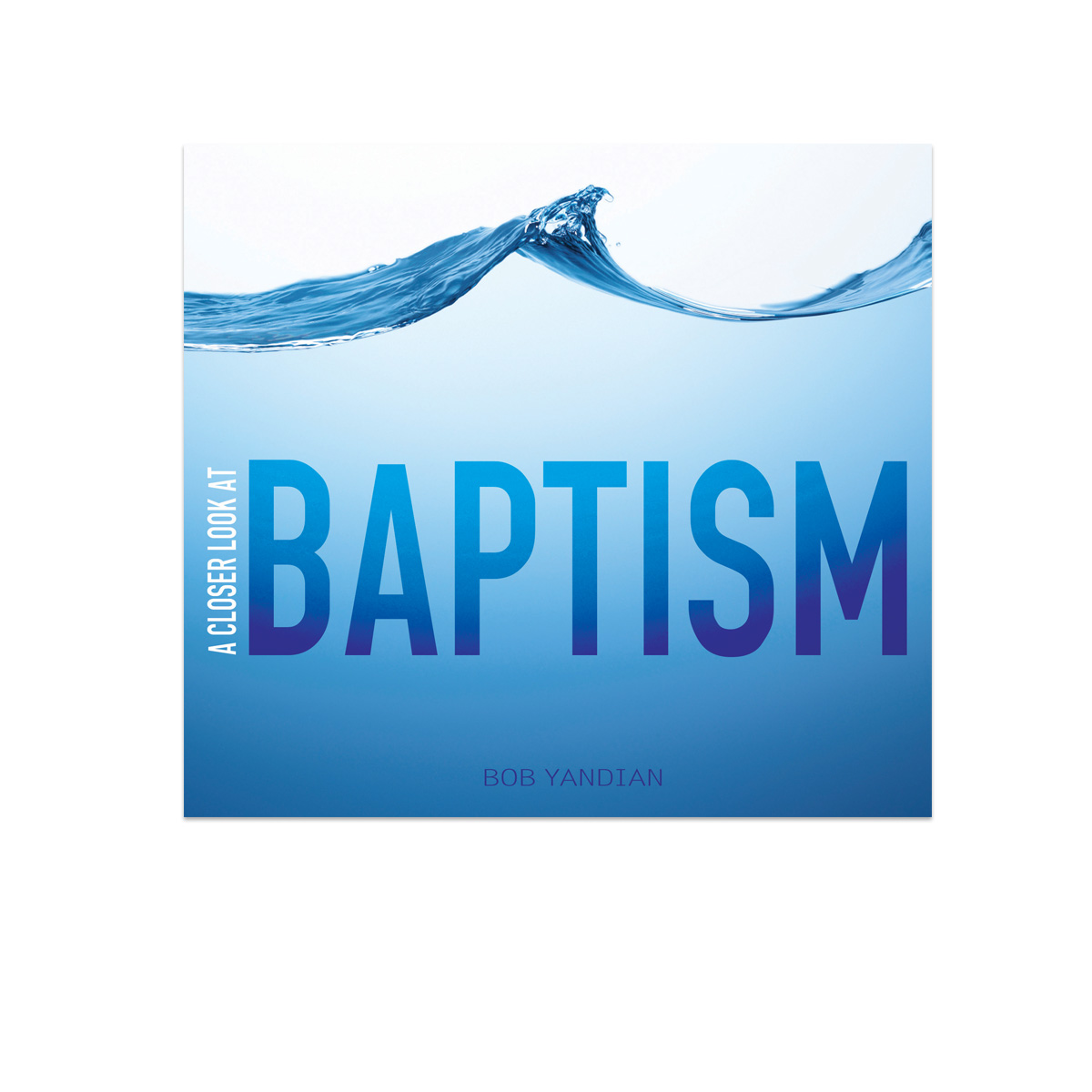Three Rituals for the Church Age
Bob Yandian
Unlike the Old Testament where many forms of ritual surrounded the believers of Israel, the Church has only three. Since the work of the cross is over, all of the rituals which pointed to the death, burial, and resurrection of Jesus are now unnecessary. We have now passed the shadow and come to the substance, which is the Church Age, the Body of Christ.
Colossians 2
vs. 15 “He disarmed the rulers and authorities and put them to open shame, by triumphing over them in him.”
vs. 16 “Therefore, let no one pass judgment on you in questions of food and drink, or with regard to a festival or a new moon or a Sabbath.”
vs. 17 “These are a shadow of the things to come, but the substance belongs to Christ.”
The Three Rituals
The three types of ritual for the church age are water baptism, anointing with oil for healing, and communion. The types of ritual given today do not point to the future, but back to the finished work of Jesus in redemption. The key word attached to communion and all three is “remember”. It is also important to understand that it is never the ritual which has the power, but what the ritual stands for. Faith does not stand in the water, the oil or the communion elements, but what they stand for, the finished work of Jesus to deliver us today.
1. Water Baptism
Some people are convinced they should be baptized in river water. Some are even further convinced they should be baptized in the Jordan River in Israel for the baptism to truly count. God doesn’t care if you are baptized in a swimming pool, a bathtub, or a horse trough. It is not the place or type of water, it is what water baptism stands for that has meaning and the power to change. Water baptism symbolizes the new birth and more importantly, that the person knowingly has accepted Jesus Christ as savior. In the New Testament, converts were baptized after they accepted Jesus (Acts 8:34-39). The water symbolizes death and burial of the old life. Coming out of the water represents resurrection to newness of life. Many people have received transformations when water baptized. Many have gone under the water sick and come up healed. Others have come up filled with the Holy Spirit and speaking with tongues. When understood, water baptism can be life changing.
2. Anointing With Oil for Healing
James 5
vs. 14 “Is anyone among you sick? Let him call for the elders of the church, and let them pray over him, anointing him with oil in the name of the Lord.”
Many believers are convinced the local church should use olive oil when laying hands on the sick for healing. It is true this was probably what was used in the times of the New Testament, but God is not overly concerned with the type of oil. If you have olive oil, use it. But if not, use whatever is available. It is not the oil that heals the sick, but the prayer of faith. God could not care less if you used motor oil or Crisco. The oil represents the Holy Spirit and His presence and power to heal. I might also point out that the correct hands are not important in healing but the faith. Some people want hands laid on them by a famous minister. The hands of the individual only represent the hand of The Lord, the divine power of the ministry of the Holy Spirit. This power will work through the hands of any believer (Mark 16:18). The oil helps the person being prayed for to get their attention on the presence of the Holy Spirit and off their sickness. The hands let them know that healing comes from heaven through the Holy Spirit and not from their own good works or worthiness.
3. The Communion Elements
With the ritual of communion believers often argue whether to have real wine or grape juice and unleavened bread or regular bread. God doesn’t care if you use root beer and Twinkies. Jesus said, “Do this in remembrance of me” (Luke 22:19). Keeping your attention on the finished work of the cross is what will bring the miracle power of forgiveness and divine healing. The cup and the bread are merely a point of contact for the individual to release faith in the power of God. There is no merit in the element but in the remembrance.
1 Corinthians 11
vs. 29 “For he who eats and drinks in an unworthy manner eats and drinks judgment to himself, not discerning the Lord’s body.”
vs. 30 “For this reason many are weak and sick among you, and many sleep.”
There is power in the simple act of communion to forgive us of our sins and to heal us of disease. Notice in this verse that Paul is addressing believers, Christians. They were carnal but still believers (1 Corinthians 3:1-3). Paul never says that believers are unworthy because we are all worthy through the new birth, the blood of Jesus Christ. These believers were eating and drinking unworthily, in an unworthy manner. They were not properly understanding the meaning of the communion table. They were taking lightly the meaning of the bread and cup.
The Corinthians began to go wrong when they turned the Lord’s table into a time of partying and fellowship. It is a time of reflection and worship. Paul had to rebuke them and bring them back into remembrance of what the communion table stood for. Cliques had developed among the rich people of Corinth and they fellowshipped among themselves sharing food with each other until they were full and drunk. This was all done at the expense of the poor saints who were left out and hungry.
1 Corinthians 11
vs. 20 “Therefore when you come together in one place, it is not to eat the Lord’s Supper.”
vs. 21 “For in eating, each one takes his own supper ahead of others; and one is hungry and another is drunk.”
vs. 22 “What! Do you not have houses to eat and drink in? Or do you despise the church of God and shame those who have nothing? What shall I say to you? Shall I praise you in this? I do not praise you.”
Instead of fellowshipping first with each other, make the time of communion a time to fellowship with God and give Him thanks for the blood and body of His Son, Jesus.



